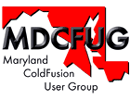 |
 |
 |
|
|||||||||||||||||
 |
|
|||||||||||||||||||
|
 Speakers
Speakers
Charlie Arehart Jo Belyea-Doerrman Tim Buntel Raymond Camden Christian Cantrell Sandra Clark Joey Coleman Sean Corfield Robert Diamond Michael Dinowitz Steve Drucker David Epler Joseph Flanigan April Fleming Ben Forta Shlomy Gantz Mark Gorkin John Hamman Hal Helms Simon Horwith Larry Hull Jeff Houser Chafic Kazoun Matt Liotta Tom Muck Rey Muradaz Nate Nelson Samuel Neff Jeff Peters Bogdan Ripa Neil Ross Margarita Rozenfeld Stephen Shapiro Michael Smith Geoff Snowman Jeff Tapper Dave Watts
|
|
||||||||||||||||||
|
|
| 1 | 2 | 3 | 4 | 5 | 6 | 7 | 8 | 9 | 10 | 11 | 12 | 13 | 14 | 15 | 16 | 17 | 18 | 19 | 20 | 21 | 22 | 23 | 24 | 25 | 26 | 27 | 28 | 29 | 30 | 31 | 32 | 33 | 34 | 35 | 36 | 37 | 38 | 39 | 40 | 41 | 42 | 43 | 44 | 45
Back To Interview list In his first CFUN interview with Charlie Arehart, Michael Smith queries Charlie about his presentation, "Deploying CFML on J2EE: Opportunities and Challenges." Michael Smith: Charlie, why should someone care about J2EE? Charlie Arehart: That's a great question, because I'm sure some looking at the title may yawn since they don't use J2EE, don't want to, or just don't see any relevance in their environment. They use ColdFusion (or CFMX or BlueDragon) as a standalone server and are happy with it. But guess what: this talk is really addressed toward them, to explain why it's worth considering running your CFML on J2EE. MS: What does J2EE mean? Is it just another word for Java? CA: Well, this is another source of confusion for folks new to the topic. There's the "technical" definition, and then there's the "practical" one. Technically, J2EE means "Java 2 Enterprise Edition" and a J2EE server is an application server, like WebLogic, WebSphere, JRun, JBoss, SunOne, Oracle, etc., which manages the execution of components written to the J2EE specification from Sun. This is generally JSPs and servlets for web applications, EJBs as a component architecture, JMS as a messaging architecture. I won't detail those acronyms as that's not really the point of this talk. MS: I am glad because I have acronym overload right now! What does this mean in practice? CA: Indeed, that leads to the other point, which is the "practical" definition of a J2EE server. For web developers who work in Java, it's just the server they use to run JSPs and servlets, which are a Java way of doing things we do in CFML. The powerful thing, and the reason for this presentation, is that you can run your CFML on such a J2EE server. It's easy to do, brings many benefits, and has value even if you've never heard of J2EE before. I promise! MS: I have heard of organizations saying "all programming must be on J2EE platform"... CA: Yes, this is the first class of folks who should care about running CFML on J2EE. They work in an organization that's moving to J2EE, and they're being told it's time to sunset ColdFusion or do "no new development" on CF. They (and management, and the J2EE vendors, and the Java developers) all think the answer it to rewrite everything in JSP, servlets, EJB's, etc. They don't understand how they can protect their investment in CFML, keep their jobs, and even expand their capabilities, all while still coding in CFML...but on a J2EE server. MS: What about those who don't know or care much about J2EE? CA: That's the second class of folks who this is addressed to, and frankly, I think it's a wider audience. But they don't even know that there's a solution -- or even that there are problems they could solve another way. I want to show them the many benefits you can get by running CFML on J2EE, and it doesn't have to change your development at all. It's still just CFML. MS: Didn't you just write an article about this? CA: Yes, I just put together an article for the CFDJ (should be out before the CFUN event) that takes several pages just listing the benefits! A future article will show how easy it can be to deploy CFML on J2EE, even if you've never used a J2EE server before. (And I can't deny the fact that deploying on J2EE with BlueDragon is much easier than what people may have seen with deploying CFML on J2EE with CFMX Enterprise.) MS: But is it still CFML if it is running on J2EE? CA: Yes, and I can't stress that point enough. The key issue with all this is that CFML on J2EE is still just CFML. Whether you use CFMX Enterprise's approach or BlueDragon/J2EE's approach, they both allow you to run your CFML on a J2EE server by packaging your CFML application into a J2EE web application (or WAR or EAR file). As a CFML developer, you don't need to know or care what that means, but the folks who run J2EE servers will. And if your organization does use a J2EE server, and especially if there is a mandate to move to that as your organization "standard", then deploying CFML on J2EE not only solves the "ColdFusion problem" but also can give CFML a new lease on life. MS: What do you say to J2EE jocks about CFML on J2EE? CA: Several things, and they revolve around the key point that while it's just CFML, it's packaged as a J2EE web application, which is exactly what J2EE administrators want when you want to deploy a web application on their server. They may THINK that it has to be written in JSP or servlets, and they may PREFER that it be done that way, but all that really should matter to them is that you are giving them a self-contained J2EE web application. This approach is more clearly taken by the way BlueDragon allows you to deploy CFML on J2EE, but it's also in some ways similar in CFMX. The bottom line answer to your question is this: - to enterprise architects who may criticize your using ColdFusion, you can say "it's just a J2EE webapp". - to those who argue against installing/running a ColdFusion (or indeed a BlueDragon) server, you don't need to. It's just a J2EE web app. - to the J2EE server administrators who deploy the application, the fact that it's CFML is immaterial since, again, it's just a J2EE web app. MS: Are there any other benefits for CFML developers that they just can't get running on a standalone CFML server? CA: Absolutely, here are just the main ones, which I'll describe further in the presentation: 1. Application Management
5. Integrating CFML with J2EE 6. Supporting Various Platforms MS: Wow that is quiet a list! And it's stuff not available to CF developers normally? CA: Again, some of those are benefits not available on CFMX Standard/Pro or CFMX Enterprise run as standalone (and the same with BlueDragon Server and Server JX). These standalone servers don't have some of the capabilities that J2EE servers generally do have. By using the J2EE deployment capabilities of BlueDragon/J2EE and CFMX Enterprise's non-standalone installation options, you can access these benefits from your CFML. Actually, some don't work quite as well in CFMX as BlueDragon, but this talk won't focus much on those differences. I'm talking to CFML developers whether they choose the one approach or the other. The key point is that CFML on J2EE is a powerful way to extend your CFML applications. MS: Sounds like a very interesting talk. I will check it out. Thanks for talking with me, Charlie. |
 |
|
|||||||||||||||||
| Home | Topics | Speakers | Directions | Spread the Word | Register |
© Copyright TeraTech Inc 2003
405 East Gude Drive Ste 207 Rockville MD 20850
301.424.3903 Fax 301.762.8185 www.teratech.com
Please send comments/questions to [email protected]
For sponsorships or registration, please send comments/questions to liz-cfun04 (at) teratech.com


































